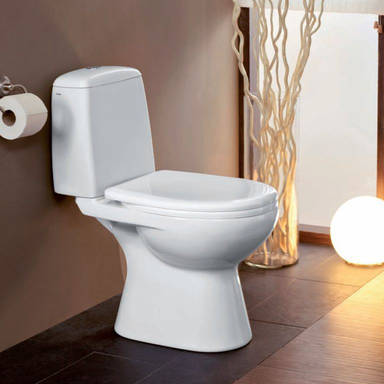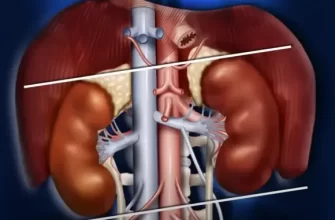Frequent urination can be a normal response to various behaviors, but it can also indicate underlying health issues.
8 Reasons Why You May Be Peeing So Much
If you find yourself hopping to the bathroom more often than you think is normal, you might want to consider the following reasons:
- Hydration Levels:
- Drinking plenty of fluids, particularly water, is essential for good health. However, if you drink an excessive amount, your body will try to balance fluid levels by increasing urine output. Keep an eye on your water intake!
- Caffeine and Alcohol Consumption:
- Both act as diuretics, causing your kidneys to produce more urine. If your diet includes a substantial amount of coffee, tea, or alcohol, consider cutting back to see if it reduces your bathroom visits.
- Urinary Tract Infections (UTIs):
- A common infection, especially in women, that can make you feel the urge to urinate more frequently. Other symptoms include a burning sensation during urination, cloudy or bloody urine, and pelvic pain.
- Diabetes:
- Both type 1 and type 2 diabetes can make you urinate more often as the body tries to rid itself of unused glucose through the urine. Look out for other signs such as increased thirst, hunger, and fatigue.
- Pregnancy:
- As the uterus expands, it can press on the bladder, leading to a more frequent need to urinate. This is normal but if you’re experiencing pain or burning sensations, it’s best to consult with a healthcare provider.
- Medications:
- Certain medicines, such as diuretics for high blood pressure, can increase urine production. Read the side effects of any medication you are taking or talk to your pharmacist to understand their impact on urination.
- Overactive Bladder (OAB):
- A condition where the bladder can’t hold urine normally. Symptoms include feeling sudden urges to urinate or experiencing involuntary urine leakage.
- Diet:
- Specific foods can increase urination. Foods that are high in acid (like tomatoes and oranges) or that act as natural diuretics (such as celery, grapes, or asparagus) may up your trips to the loo.
| Reason | Potentially Modified by | Associated Symptoms/Info |
|---|---|---|
| Hydration | Regulating intake | Adjust based on activity level |
| Caffeine/Alcohol | Lowering consumption | Diuretic effects |
| UTIs | Medical treatment | Discomfort, cloudy/bloody urine |
| Diabetes | Medical management | Thirst, hunger, fatigue |
| Pregnancy | N/A (temporary) | Pressure on bladder |
| Medications | Consultation with healthcare | Side effects of drugs |
| OAB | Medical management | Urgency, incontinence |
| Diet | Dietary adjustments | Acidic foods, natural diuretics |
If any of these issues significantly impact your life or are accompanied by other concerning symptoms, a healthcare professional should be consulted to determine the cause and appropriate treatment. Remember, while frequent urination in itself isn’t always a sign of a major problem, it’s your body’s way of telling you that something could be off balance, so it’s worth paying attention to.
FAQ: Peeing Too Much – Is It Dangerous?
1. What does it mean to pee too much?
Peeing too much refers to frequent urination, which could be either an increase in the volume of urine produced or a need to urinate more often than usual, or both. Clinically, it’s known as polyuria when there’s too much urine and urinary frequency when the need to go is more often.
2. How often is considered ‘too much’ when it comes to peeing?
While there’s no one-size-fits-all answer, generally peeing more than 8 times during the day and more than once at night might be considered ‘too much.’ However, this can vary depending on individual hydration levels and health conditions.
3. What are some common causes of frequent urination?
Common causes can include:
- High fluid intake
- Diuretic substances, like caffeine and alcohol
- Urinary tract infections (UTIs)
- Diabetes (both Type 1 and Type 2)
- Pregnancy
- Medication side effects
- Overactive bladder
- Prostate problems in men
4. When should I be concerned about peeing too much?
Be concerned if you’re also experiencing:
- Pain or burning sensation during urination
- A noticeable change in urine color or smell
- Cloudy or bloody urine
- Increased thirst or appetite
- Fatigue or lethargy
- Fever or chills
- Unexplained weight loss
- Swelling in any body parts
5. Can peeing too much be a sign of a serious condition?
Yes, it can be a sign of underlying conditions such as diabetes, kidney issues, or a urinary tract infection, among others. If symptoms persist, it’s essential to see a healthcare provider for an accurate diagnosis.
6. What kind of treatments are available for frequent urination?
Treatments depend on the underlying cause:
- For UTIs, antibiotics are typically prescribed.
- Diabetes management might include blood sugar regulation through medication and diet.
- Overactive bladder might be treated with medication or pelvic floor exercises.
- Behavioral therapies like bladder training could also be beneficial.
7. Can lifestyle changes reduce the frequency of urination?
Yes, some lifestyle changes can help:
- Reducing the intake of diuretics like caffeine and alcohol
- Maintaining a healthy weight
- Managing fluid intake
- Kegel exercises to strengthen pelvic floor muscles
8. Is there a difference between daytime and nighttime frequent urination?
Yes. Frequent urination at night, known as nocturia, can be a separate condition. It may be caused by lifestyle factors or conditions such as sleep apnea, UTIs, or bladder prolapse.
9. How can I differentiate between normal and excessive peeing?
If you notice a sudden increase in your frequency or volume of urination without a clear reason (such as increased fluid intake), it might be excessive. Keeping a urinary diary for a few days can help track your patterns.
10. When is it time to visit a doctor?
You should visit a doctor if:
- The problem persists for several days
- It’s affecting your quality of life
- You have other symptoms like pain, fever, or changes in urine appearance
- Your frequent urination starts abruptly or is accompanied by other concerning signs
Remember, peeing too much can sometimes be harmless, but it can also be a warning sign that shouldn’t be ignored. Staying informed and proactive about your health is key!









